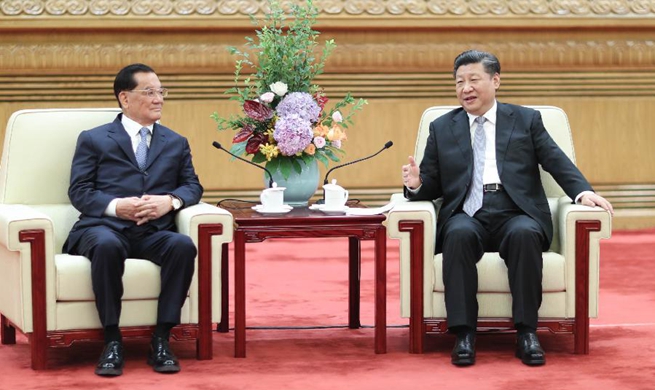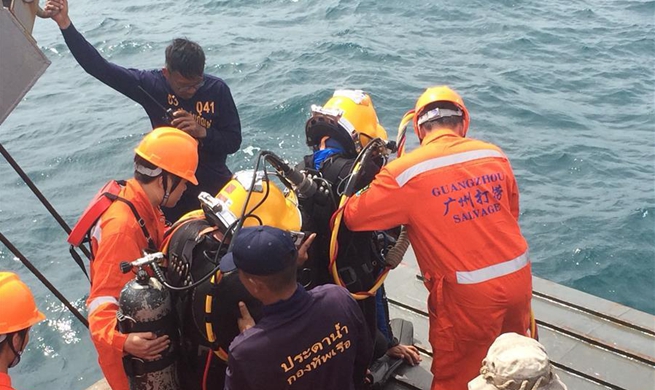by Eric J. Lyman
ROME, July 13 (Xinhua) -- Leaders from Italy and Libya announced this week they would reactivate a decade-old "friendship treaty," though analysts said it is unclear whether the agreement would have its intended impacts.
The deal was struck in 2008 between then-Italian Prime Minister Silvio Berlusconi and Muammar Gaddafi, who was then leader of Libya.
According to Giuliano Bifolchi, one of the directors of the Association for Studies, Research, and Internationalization in Eurasia and Africa, the terms of the deal said Italy would invest at least five billion U.S. dollars (4.3 billion euros) in Libyan infrastructure and development over 20 years.
Under the treaty, Italy would provide compensation investments to Libya for the colonization of Libya. In return, Libya was to prevent illegal migrants from departing from its shores en route to Italy.
The agreement was suspended in 2011, soon after the start of a civil war in Libya.
This week, Italian Foreign Minister Enzo Moavero Milanesi and Mohamed Sayala, foreign minister of the Government of National Accord of Libya, agreed to reactivate the "friendship treaty," a move Milanesi called "significant and promising."
It was not immediately clear whether the original 2008 agreement had been amended or updated in any significant way.
"In general terms, there is no reason a version of the deal would not still work," Bifolchi told Xinhua. "In practical terms, these are obstacles."
Italy's new government, which has been in power for just six weeks, has been taking a hard-line stance against migration. The government has turned away rescue boats full of asylum seekers, and pressured other European governments to take similar steps. Italian Interior Minister Matteo Salvini has vowed to expel as many as half a million migrants already living in Italy.
Over the last year, arrivals of would-be migrants from Libya has fallen off dramatically, in large part because of Italian funding of the Libyan Coast Guard. Reactivating the "friendship treaty" is an attempt to build on that trend.
But Ennio Codini, a member of the scientific committee for the Foundation ISMU, which focuses on multi-ethnic studies, said in an interview that it was not clear how effective it would be.
"I think Italy is making a wager that these steps will help in the long term," Codini said. "It's obviously not going to solve the problem, but perhaps it can be part of a broader solution."













